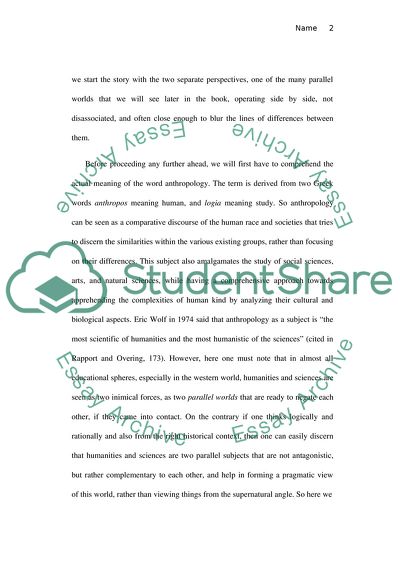Cite this document
(The Concept and Meaning of Anthropology Book Report/Review Example | Topics and Well Written Essays - 1250 words, n.d.)
The Concept and Meaning of Anthropology Book Report/Review Example | Topics and Well Written Essays - 1250 words. https://studentshare.org/anthropology/1740148-parallel-worlds
The Concept and Meaning of Anthropology Book Report/Review Example | Topics and Well Written Essays - 1250 words. https://studentshare.org/anthropology/1740148-parallel-worlds
(The Concept and Meaning of Anthropology Book Report/Review Example | Topics and Well Written Essays - 1250 Words)
The Concept and Meaning of Anthropology Book Report/Review Example | Topics and Well Written Essays - 1250 Words. https://studentshare.org/anthropology/1740148-parallel-worlds.
The Concept and Meaning of Anthropology Book Report/Review Example | Topics and Well Written Essays - 1250 Words. https://studentshare.org/anthropology/1740148-parallel-worlds.
“The Concept and Meaning of Anthropology Book Report/Review Example | Topics and Well Written Essays - 1250 Words”. https://studentshare.org/anthropology/1740148-parallel-worlds.


